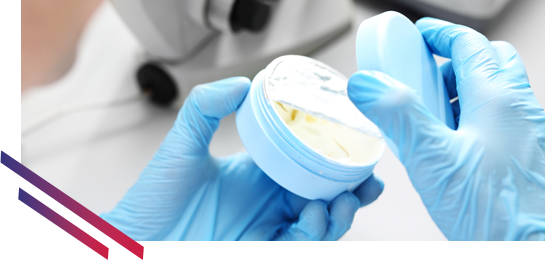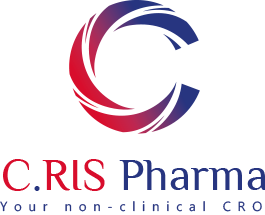COSMETIC INDUSTRY & TOXICOLOGY STUDIES
of your cosmetic project to guarantee the safety and conformity of your product with GLP regulations.
Genetic Toxicology
C.RIS Pharma performs various in vitro assays to test the genetic toxicology of new active cosmetics.
Through Bacterial Mutation Assay (Ames test, OECD 471), we can determine the mutagenic potential of the test substance by the standard or screening methods.
To study the genotoxicity of a new ingredient in mammalian cells, C.RIS Pharma performs the Micronucleus Test (OECD 473 and 474) designed to identify aneugenic and clastogenic substances. This test is carried out in vitro by using Chinese Hamster (CHO) cells and human lymphocytes.


General Toxicology (in vitro assays)
We also offer in vitro assays to evaluate general toxicology.
The cytotoxicity of a new cosmetic compound can be analysed in cultured and primary cells.
Cosmetics can induce a toxic reaction when applied to the skin and associated with light exposure. The 3T3 Neutral Red Uptake (NRU) assay evaluates this risk of phototoxicity by the relative reduction in viability of cells exposed to the drug in the presence versus absence of light (OECD 432).
For cosmetics, it is crucial to test the acute toxicity (irritation and corrosion) on skin,
for which tests on human skin biopsy are conducted (OECD 431 and 439).
For ocular irritation, we apply the Hen’s Egg Test-Chorioallantoic Membrane (HET-CAM)
according to ICCVAM recommendation.
